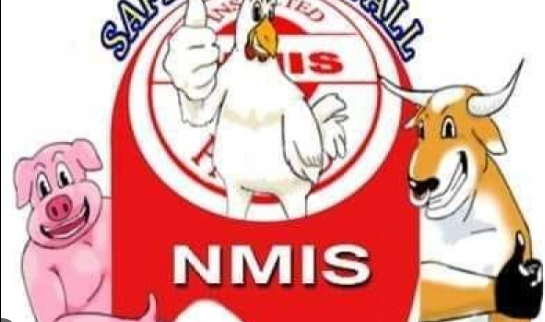The Department of Agriculture (DA) has warned against the sale of frozen meat in the wet market as this can put human health at risk due to the absence of refrigeration facilities and a lack of know-how of vendors on handling frozen meat.
DA Undersecretary Deogracias Victor B. Savellano said DA is collaborating with Department of Trade and Industry (DTI) to weed off public wet markets of health hazardous frozen products.
DA also advised consumers to look for the seal of the National Meat Inspection Service (NMIS) to ensure food safety.
“Delikado ito sa kalusugan ng tao. Hanapin ang papeles ng NMIS at katayan ng mga LGU (local government units). Walang problema ang imported na karne. Huwag lang ibenta na sariwa sa palengke.”
(This is dangerous to health. Look for the NMIS food safety seal and LGU’s slaughterhouse documents. Imported frozen meat is not the problem, but their handling as fresh food in wet markets.)
DA Administrative Order 6-2012 prohibits frozen meat from being sold in the wet market. Frozen meat should only be confined to hotels, restaurants, and supermarkets which have refrigeration facilities and handling expertise.
Savellano said DA is also examining the price difference of poultry being sold in the market compared to farmgate prices. While poultry’s price sold in the wet market has been increasing, farmgate price has actually been decreasing.
“Ang mga nag-aalaga ng manok ay dumadaing sa mababang presyo na kuha sa kanila ng mga biyahero,” he said.
(Poultry farmers have been complaining against the low price at which traders buy their produce.)
DA believes the excessive dumping of frozen meat in the wet market may be the cause why farmgate price of poultry has been decreasing to the detriment of farmers.
Also, Savellano fears poultry farmers have been cutting maturity days for harvesting poultry—down to 27 or 28 days instead of 30 days. This, as they try to meet poultry demand in time for the Christmas holidays.
However, instead of increasing their income from increased production, they may be suffering from low farmgate prices due to excessive frozen meat in the wet market.
Savellano said DA’s objective is three-pronged, not just raise supply. But it is to raise production, bring down prices for consumers, and raise farmers’ income.
DA’s strategy to meet these objectives is to increase feed production to lower price, reported Heaven Torres of DA Livestock.
“Nagpapatanim na kami ng malalaking plantasyon ng mais para mapababa ang gastos ng mga nag aalaga at siya ding dapat ikababa sa merkado para sa lahat ng Pilipino. Ang dapat na mababang presyo sa farm ay dapat maramdaman ng mga mamimili sa palengke.”.
(DA is now expanding planting of corn so as to bring down feed costs of poultry farmers. This should lead to lower price of chicken for Filipino consumers. Filipinos should be able to feel the low price of chicken).
DA has also asked Malacanang to grant it the authority to manage and administer African swine fever and avian flu vaccine.
As soon as it is granted this jurisdiction (with which it has conflict with Food and Drug Administration), it can then hasten processing of access of vaccines to the industries. This is critical in preventing the fast spread of diseases. – (PR)
PHOTO: Safe meat for all. (Credit NMIS)

